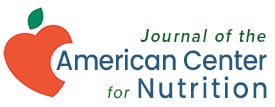
High blood pressure, or hypertension, is a major risk factor for heart disease. For this reason, it’s important to understand what might contribute to high blood pressure. Dairy has long been thought to be a dietary cause of high blood pressure, but the research on this topic is mixed.
Some studies suggest that dairy may actually help to lower blood pressure and the risk of hypertension. Dairy has been shown to contain nutrients that may help improve heart health, such as calcium, potassium, and magnesium.
Dairy also contains protein and healthy fats, which can help keep you full and satisfied after eating.
More research is needed to understand the complex relationship between dairy and heart health. But it’s possible that dairy, in moderation, could be part of a healthy diet for people with high blood pressure.
Dairy Consumption and High Blood Pressure: Is There a Link?
A study published in the American Journal of Clinical Nutrition followed 149,618 adults for an average of eight years.
The results showed that those who ate the most dairy had a 12% lower risk of developing high blood pressure than those who ate the least. Eating more dairy was also linked with an 8% lower risk of developing diabetes [1].
Expert Tip: Dairy is a great source of calcium, potassium, and magnesium- three essential nutrients for maintaining healthy blood pressure levels.
How Many Servings Should You Have?
The Dietary Guidelines for Americans recommend that adults consume 3 cups per day of dairy [2]. This includes milk, yogurt, and cheese. You can also get your dairy fix from fortified soy milk and dairy alternatives.
While your total dairy intake should stay close to these numbers, especially in terms of blood pressure and associated risk, you might need more or less in your diet, depending on your body mass index.
Expert Tip: Cottage cheese is an excellent option, and while low-fat cheese might seem tempting, it is better for your calcium intake and your health to choose whole-fat dairy.
What Makes Milk Good for High Blood Pressure?
The nutrients in dairy fat may help to lower blood pressure. Dairy is a good source of potassium, calcium, and magnesium. These minerals are known for their ability to help lower blood pressure [3].
While these minerals are present in all forms of milk, you will find they are more abundant in whole milk than skim milk or other forms of low-fat milk.
Potassium
Potassium helps to relax blood vessels and reduce the strain on the heart. It also aids in the elimination of sodium from the body.
Expert Tip: You can get your dairy fix and your potassium fix by enjoying a glass of milk with your breakfast or adding a slice of cheese to your sandwich at lunch.
Calcium
Calcium is needed for proper muscle function. It helps to keep blood vessels and muscles healthy. It also helps maintain bone strength and density, preventing brittle bones from getting older.
Magnesium
Magnesium is involved in more than 300 biochemical reactions in the body. It helps to maintain normal blood pressure and heart function [4].
Dairy and Heart Disease
In addition to lowering blood pressure, dairy consumption has also been linked with a reduced risk of heart disease. A study of more than 3,000 adults found that those who ate the most dairy had a 32% lower risk of developing heart disease than those who ate the least [5].
While more research needs to be done to determine the link between cardiovascular disease and dairy, the results are promising so far.
Once again, these cardiovascular risk factors are lowest with whole-fat dairy consumption as part of your dietary patterns. Doing this can even help to prevent metabolic syndrome.
Expert Tip: The dairy foods that are best for your heart are yogurt, cheese, and milk. Choose full-fat options to get the most benefit.
What About Cheese?
Cheese is a dairy product that is often high in saturated fat. A meta-analysis of 17 studies found that cheese consumption was not associated with an increased risk of heart disease [6].
In fact, some studies have found that cheese may actually protect against heart disease. One study showed that those who ate the most cheese had a 14% lower risk of dying from heart disease [7].
It’s reassuring that even dairy intake through cheese bears no increased coronary artery risk development, and while prospective cohort studies are very promising, it is also important to remember that more research needs to be done.
Does Dairy Have any Health Risks?
Dairy has many health benefits, but it is also important to be aware of the potential risks. Dairy products are the top source of saturated fat in the American diet [8]. Saturated fat can raise your cholesterol levels and increase your risk of heart disease.
Full-fat dairy products also contain more calories than their low-fat counterparts. If you are trying to lose weight, you may want to choose low-fat dairy products or dairy alternatives.
However, it should be remembered that low-fat dairy intake has fewer benefits than high-fat dairy equivalents.
Dairy products also contain lactose, a type of sugar that can cause digestive problems for those who are lactose intolerant. Symptoms of lactose intolerance include:
- Bloating
- Gas
- Stomach pain
- Diarrhea
What Is High Blood Pressure?
High blood pressure, also known as hypertension, is when your systolic blood pressure (the top number of a blood pressure reading) is consistently above 140 mmHg or your diastolic blood pressure (the bottom number of a blood pressure reading) is consistently above 90 mmHg.
Expert Tip: You can check your blood pressure at your doctor’s office, a pharmacy, or at home with a digital blood pressure monitor.
What Are The Risk Factors For High Blood Pressure?
There are a variety of lifestyle and health factors that can increase your risk for developing high blood pressure, including:
- Smoking
- Being overweight or obese
- Having diabetes
- Eating a diet high in salt
- Not getting enough exercise
- Drinking too much alcohol
Research Results of Dairy’s Impact on Blood Pressure
The link between dairy consumption and high blood pressure is not as strong as some people believe. In fact, dairy may actually protect against high blood pressure.
It’s interesting to see how many potential positives milk has in terms of our health, and the reminder that full-fat is the better choice when compared to skimmed and semi-skimmed options is a reminder of how moderation is key to all things in our diets.
Cheese, in particular, does not appear to increase the risk of heart disease. So, if you enjoy dairy products, there is no need to worry about their effect on your blood pressure.
REFERENCES:
- https://pubmed.ncbi.nlm.nih.gov/23021710/
- https://pubmed.ncbi.nlm.nih.gov/11435500/
- https://www.verywellhealth.com/usda-excessive-dairy-recommendation-5209241
- https://pubmed.ncbi.nlm.nih.gov/35277068/
- https://pubmed.ncbi.nlm.nih.gov/27517544/
- https://www.ncbi.nlm.nih.gov/pmc/articles/PMC5295107/
- https://www.foodnavigator.com/Article/2021/08/26/Are-saturated-fats-from-meat-and-dairy-equally-bad-for-the-heart

